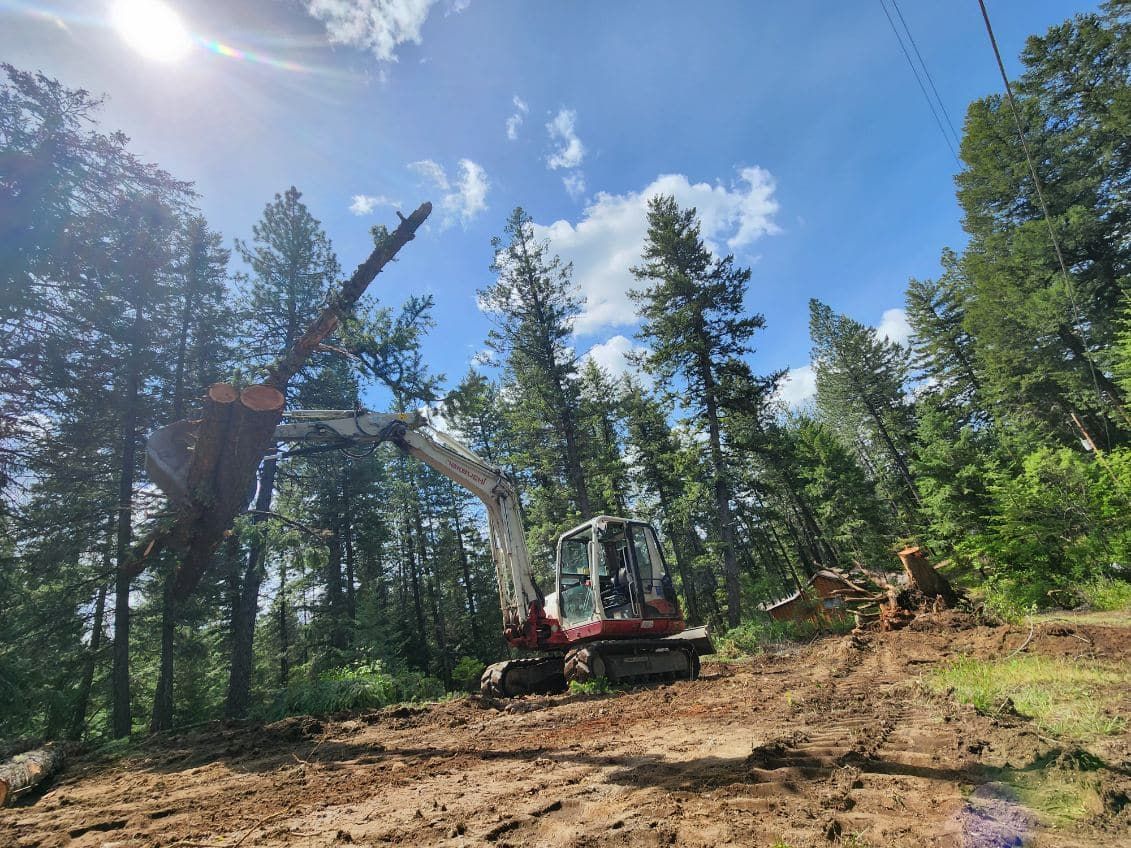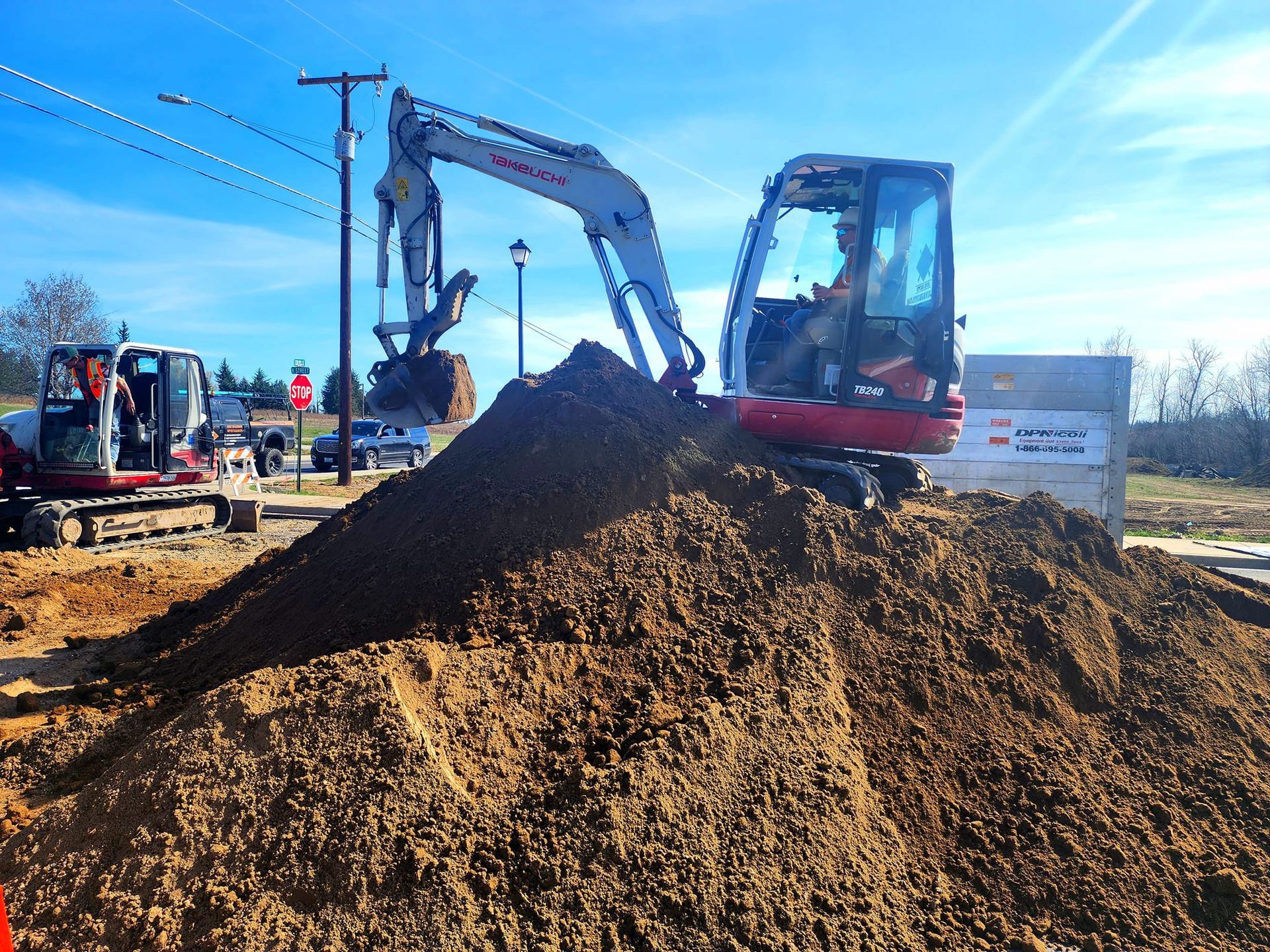Spokane Excavation- A Comprehensive Guide To Excavation Services
From Acreage to City Parcels, We Develop It!

Excavation services play a crucial role in construction, landscaping, and infrastructure development. From the foundations of a new home to large-scale infrastructure projects, excavation is the first step in transforming a piece of land. This blog delves into the various aspects of excavation services, their importance, types, processes, and the factors to consider when hiring an excavation contractor.
What Are Excavation Services?
Excavation services encompass a range of activities related to the moving and removal of earth. These activities include digging, trenching, grading, and site preparation. The primary goal of excavation is to prepare a site for construction or other uses by removing soil, rock, and other materials, and sometimes reshaping the landscape to meet specific project requirements.
Importance of Excavation in Construction
- Foundation Preparation: The stability of any structure depends on a solid foundation. Excavation ensures that the ground is adequately prepared, leveled, and compacted to support the weight and design of the building.
- Utility Installation: Excavation is essential for installing underground utilities such as water pipes, sewer lines, electrical conduits, and gas lines. Proper trenching and backfilling are crucial for the safety and functionality of these systems.
- Landscaping and Drainage: Excavation shapes the land to create aesthetically pleasing landscapes and efficient drainage systems. Proper grading prevents water pooling and soil erosion, protecting both the environment and property.
- Road and Infrastructure Development: Excavation is fundamental in the construction of roads, bridges, tunnels, and other infrastructure projects. It ensures that these structures are built on stable ground and meet engineering specifications.
Types of Excavation
Excavation projects can vary widely based on their purpose and scope. Here are some common types:
- Topsoil Excavation: Removal of the uppermost layer of soil, rich in organic material, to expose the more stable ground beneath.
- Rock Excavation: Involves breaking and removing solid rock using specialized equipment or explosives.
- Earth Excavation: General removal of soil to prepare a site for construction.
- Muck Excavation: Removal of waterlogged soil and material, often found in marshy or swampy areas.
- Trench Excavation: Digging narrow and deep trenches for utility installation, foundations, or drainage systems.
- Cut and Fill Excavation: Involves cutting into higher areas and filling lower areas to create a level surface.
The Excavation Process
The excavation process involves several critical steps to ensure safety, efficiency, and accuracy:
- Surveying and Planning: Detailed site surveys and planning are conducted to understand the project's requirements, identify potential obstacles, and develop a clear excavation plan.
- Clearing and Grubbing: The site is cleared of vegetation, debris, and any existing structures. This step ensures that the excavation area is free from obstructions.
- Digging and Removal: Excavators, bulldozers, and other heavy machinery are used to dig and remove soil, rock, and other materials. The method and equipment used depend on the project's scope and the type of material being excavated.
- Trenching and Shoring: For projects requiring trenches, such as utility installation, proper trenching techniques and shoring are employed to prevent collapses and ensure worker safety.
- Backfilling and Compaction: After the excavation is complete, backfilling involves replacing the removed material to create a stable base. Compaction ensures that the ground is firm and level, preventing future settling.
- Final Grading: The final grading shapes the land according to the project's specifications, ensuring proper drainage and preparing the site for construction.
Factors to Consider When Hiring an Excavation Contractor
- Experience and Expertise: Look for contractors with a proven track record in similar projects. Experience ensures that they can handle the complexities of your specific excavation needs.
- Equipment and Technology: Modern, well-maintained equipment and the use of advanced technology can significantly impact the efficiency and quality of the excavation work.
- Licensing and Insurance: Ensure that the contractor is licensed and insured. This protects you from liability in case of accidents or damage during the excavation process.
- References and Reviews: Check references and read reviews from previous clients. This provides insight into the contractor's reliability, work quality, and professionalism.
- Cost and Timeline: Obtain detailed quotes and timelines from multiple contractors. Compare their offerings to ensure you get the best value for your investment.
- Safety Record: A good contractor prioritizes safety. Inquire about their safety protocols and record to ensure that the excavation will be conducted without unnecessary risks.
Conclusion
Excavation services are the backbone of any construction or land development project. Whether you're building a new home, installing utilities, or developing infrastructure, professional excavation ensures a solid start. By understanding the types of excavation, the process involved, and the factors to consider when hiring a contractor, you can make informed decisions that lead to successful and safe project completion. Unlock the potential of your land with the right excavation services and pave the way for a sturdy and enduring foundation.















